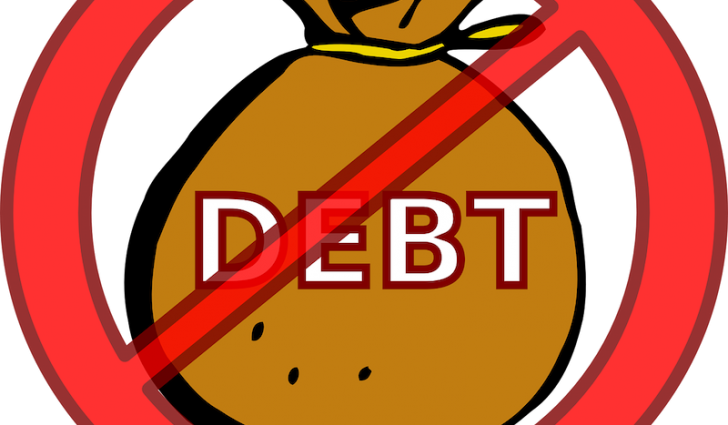Economy
Moving Towards Debt Sustainability

By FSDH Research
The drop in government’s revenue in the face of the rising government expenditure has led to an increase in Nigeria’s public debt (external and domestic debt).
Consequently, the ratio of debt service-to-revenue has reached unsustainable levels. The Debt Management Office (DMO) in its 2016 Debt Sustainability Analysis (DSA) report notes that the debt service-to-revenue ratio (external and domestic debt service) of the Federal Government of Nigeria (FGN), excluding states and local governments breached the country’s specific threshold of 28%.
However, the FGN is taking steps towards debt sustainability by diversifying its debt profile through the issuance of the FGN Savings Bond, Diaspora Bond and Sukuk.
Additionally, the DMO disclosed that the FGN plans to refinance domestic debt, particularly the high cost Nigerian Treasury Bills (NTB) by issuing US$3bn in foreign debt of longer tenor. The planned refinancing is in line with the debt management strategy of the FGN for 2016-2019, with the overall objective of reducing its total cost of borrowing to achieve the country’s strategic target of an optimal debt mix of 60% and 40% for domestic and external debts, respectively.
Our analysis of the data from the DMO as at June 2017 shows that Nigeria’s total debt stock stood at N19.64trn, representing an increase of 13.12% from the December 2016 figure of N17.36trn.
A breakdown of the debt stock shows that external debt accounted for 23.44% (N4.60trn), while domestic debt stock accounted for 76.56% (N15.03trn).
If the DMO were to move the external debt position as at June 2017 to the planned optimal level of 40%, it means that it would have to refinance N3.25trn of the local debt in favour of the external debt.
Looking at the FGN’s debt structure, the domestic debt component stood at N12.03trn as at June 2017. NTB, which is the short-term debt, accounted for 30.77% or N3.70trn of the domestic debt of the FGN. This is higher than the target of 25% under the debt management strategy.
Consequently, the FGN is likely to replace the short-term debt with long-term debt to achieve its debt structure target. The planned restructuring of the debt stock of the FGN will result in a reduction in the average weighted cost of borrowing.
This reduction in the cost of borrowing will be as a result of lower interest rates in the international market and a reduction in the holdings of high cost NTBs.
The average yield on the 364-Day NTB from January till September 20, 2017 is 22.50% compared with the average yield on the FGN 6.375% July 2023 Eurobond of 5.85%.
Following the FSDH Research report issued on August 28, 2017 titled “A Drop in the Nigerian Treasury Bills Yield Imminent” the yield on the 364-Day NTB dropped from 22.72% in August 30, 2017 to 20.47% on September 21, 2017. The yield on the FGN Bond has also dropped in the market.
The total amount of domestic debt service in 2016 stood at N1.20trn and represents 58% of the federal allocation disbursed to the FGN. As at June 2017, the total domestic debt service stood at N684.45bn, representing 62% of the total FGN allocation of N1.10trn for the period. This represents an improvement from total domestic debt service as at March 2017, which stood at N449bn representing 82% of the total FGN allocation for the period.
We note that FGN revenue has been challenged in the last two years on account of the drop in oil revenue.
Furthermore, the fact that a significant part of government revenue goes towards interest payments means that little revenue is left for the government to undertake capital projects. The FGN needs to improve critical infrastructure in the country to increase the competitiveness of the economy to attract investments and maintain economic growth.
This effort coupled with the current tax reform of the FGN, will increase revenue accrued to the government and improve the debt service-to-revenue ratio. As the yields on the FGN securities continue to drop there will be opportunities for more activities in the corporate bond market.
Economy
NASD Exchange Rises 1.22% on Sustained Bargain-Hunting

By Adedapo Adesanya
Strong appetite for unlisted stocks further raised the NASD Over-the-Counter (OTC) Securities Exchange by 1.22 per cent on Friday, February 27.
Data revealed that the NASD Unlisted Security Index (NSI) was up by 49.41 points to 4,083.87 points from 4,034.46 points, and lifted the market capitalisation by N19.56 billion to N2.433 trillion from N2.413 trillion.
The volume of securities bought and sold by investors increased by 243.0 per cent to 4.5 million units from 1.3 million units, and the number of deals grew by 15.8 per cent to 44 deals from 38 deals, while the value of securities went down by 19.7 per cent to N82.5 million from N102.8 million.
Central Securities Clearing System (CSCS) Plc ended the session as the most active stock by value on a year-to-date basis with 35.0 million units valued at N2.1 billion, followed by Okitipupa Plc with 6.3 million units worth N1.1 billion, and Geo-Fluids Plc with 122.8 million units transacted for N480.4 million.
Resourcery Plc ended the day as the most traded stock by volume on a year-to-date basis with 1.05 billion units sold for N408.7 million, followed by Geo-Fluids Plc with 122.8 million units valued at N480.4 million, and CSCS Plc with 35.0 million units traded for N2.1 billion.
There were six price gainers yesterday led by FrieslandCampina Wamco Nigeria Plc, which added N9.02 to close at N111.46 per unui compared with the previous day’s N102.44 per unit, Nipco Plc appreciated by N6.00 to N284.00 per share from N278.00 per share, CSCS Plc recouped N1.87 to sell at N70.12 per unit versus Thursday’s value of N68.25 per unit, Geo-Fluids Plc improved by 17 Kobo to close at N3.18 per share versus N3.01 per share, Industrial and General Insurance (IGI) Plc advanced by 5 Kobo to sell at N50 Kobo per unit versus the preceding day’s 45 Kobo per unit, and Acorn Petroleum Plc chalked up 2 Kobo to settle at N1.34 per share, in contrast to the previous day’s N1.32 per share.
Economy
FX Liquidity Crunch Sinks Naira to N1,363/$1 at NAFEX, N1,370/$1 at Black Market

By Adedapo Adesanya
The Naira performed poorly against the United States Dollar in the different segments of the foreign exchange (FX) market on February 27, closing the week without a gain.
In the black market, the domestic currency weakened against the Dollar yesterday by N5 to close at N1,370/$1 compared with Thursday’s closing price of N1,365/$1, and at the GT Bank forex desk, it lost N2 to sell N1,369/$1 versus the N1,367/$1 it was sold a day earlier.
Yesterday, the Nigerian Naira lost N3.75 or 0.26 per cent against the greenback at the Nigerian Autonomous Foreign Exchange Market (NAFEX) to trade at N1,363.39/$1 compared with the previous day’s N1,359.82/$1.
Also, the Naira depreciated against the Euro at the official market during the session by N2.33 to quote at N1,609.22/€1 versus N1,606.89/€1, and appreciated against the Pound Sterling by N6.74 to settle at N1,836.49/£1 compared with the preceding session’s N1,843.23/£1.
The Naira’s latest depreciation occurred as FX demand continued to outpace available supply, intensifying pressure in the market.
In response to the negative momentum, the Central Bank of Nigeria (CBN) intervened by selling Dollars to banks and other authorised dealers in an effort to stabilise the local currency. The move came barely a week after the apex bank had purchased about $190 million from the foreign exchange market to temper the Naira’s rally.
Specifically, the CBN injected $200 million into the official market between Tuesday and Wednesday through an intervention call. However, the liquidity support proved insufficient to reverse the currency’s downward trend.
Meanwhile, the cryptocurrency market declined on Friday, with Solana (SOL) down by 10.4 per cent to $78.60, as Dogecoin (DOGE) decreased by 9.5 per cent to $0.0982.
Further, Cardano (ADA) slumped 8.9 per cent to $0.2647, Ethereum (ETH) slipped by 8.6 per cent to $1,859.10, Ripple (XRP) shrank by 8.2 per cent to $1.30, Litecoin (LTC) lost 1.4 per cent to close at $52.39, Bitcoin (BTC) slid 5.9 per cent to $63,686.39, and Binance Coin (BNB) went down by 4.9 per cent to $596.64, while the US Dollar Tether (USDT) and the US Dollar Coin (USDC) traded flat at $1.00 apiece.
Economy
Oil Prices Climb on Geopolitical Anxiety

By Adedapo Adesanya
Oil prices rose about 2 per cent on Friday, with traders bracing for supply disruptions as nuclear talks between the United States and Iran were without an agreement.
Brent crude futures settled at $72.48 a barrel after chalking up $1.73 or 2.45 per cent, while US West Texas Intermediate crude futures finished at $67.02 a barrel, up $1.81 or 2.78 per cent.
The two sides agreed to extend indirect negotiations into next week, but traders grew sceptical that an agreement between US President Donald Trump’s administration and Iran was possible.
The US and Iran held indirect talks in Geneva on Thursday after Mr Trump ordered a military buildup in the region.
Oil prices gained during the talks, on media reports indicating that discussions had stalled over U.S. insistence on zero enrichment of uranium by Iran. However, prices eased after the mediator from Oman said the two sides had made progress.
They plan to resume negotiations with technical-level discussions scheduled next week in Vienna, Omani Foreign Minister Sayyid Badr Albusaidi said on X.
Market analysts noted that geopolitical risk premiums of $8 to $10 a barrel have been built into oil prices on fears that a conflict will disrupt Middle East supply through the Strait of Hormuz, where about 20 per cent of global oil supply passes.
To cushion the impact from a possible strike, one of the world’s largest oil producers, the United Arab Emirates (UAE), is set to export more of its flagship Murban crude in April, while Saudi Arabia said it would also increase oil production.
Additionally, Saudi Arabia may raise its April crude price to Asia for the first time in five months due to higher demand from India to replace Russian supplies, potentially raising it by about $1 a barrel.
Meanwhile, the Organisation of the Petroleum Exporting Countries and its allies (OPEC+) is likely to consider raising oil output by 137,000 barrels per day for April at its March 1 meeting, after suspending production increases in the first quarter.
The resumption of output increases after a three-month pause would allow Saudi Arabia and the UAE to regain market share at a time when other OPEC+ members, such as Russia and Iran, contend with Western sanctions while Kazakhstan recovers from a series of oil production setbacks.
Eight OPEC+ producers – Saudi Arabia, Russia, the United Arab Emirates, Kazakhstan, Kuwait, Iraq, Algeria and Oman will meet at the meeting on Sunday.
-

 Feature/OPED6 years ago
Feature/OPED6 years agoDavos was Different this year
-
Travel/Tourism10 years ago
Lagos Seals Western Lodge Hotel In Ikorodu
-

 Showbiz3 years ago
Showbiz3 years agoEstranged Lover Releases Videos of Empress Njamah Bathing
-

 Banking8 years ago
Banking8 years agoSort Codes of GTBank Branches in Nigeria
-

 Economy3 years ago
Economy3 years agoSubsidy Removal: CNG at N130 Per Litre Cheaper Than Petrol—IPMAN
-

 Banking3 years ago
Banking3 years agoSort Codes of UBA Branches in Nigeria
-

 Banking3 years ago
Banking3 years agoFirst Bank Announces Planned Downtime
-

 Sports3 years ago
Sports3 years agoHighest Paid Nigerian Footballer – How Much Do Nigerian Footballers Earn











